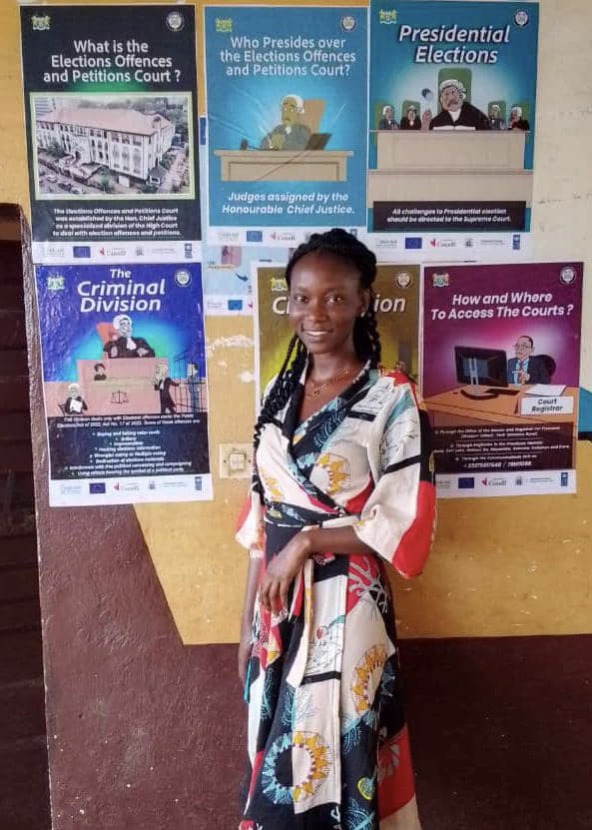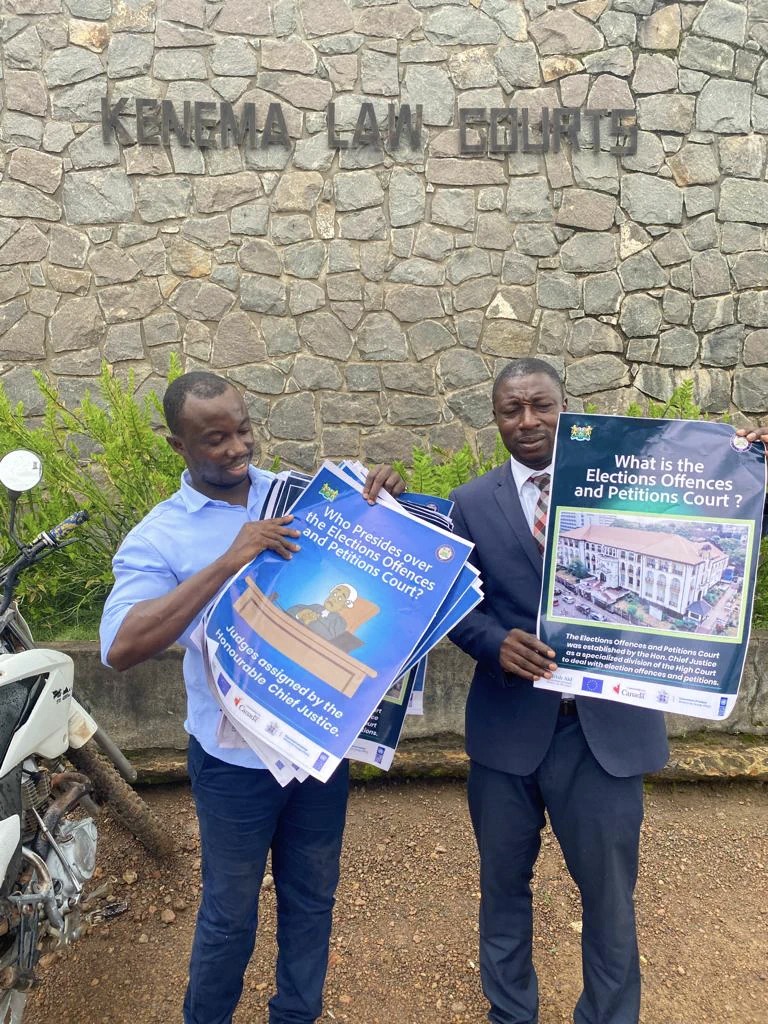The cornerstone of a functioning democracy rests on the independence of its Judiciary. In Sierra Leone, this is guaranteed by Section 120(3) of the Sierra Leone Constitution, which states that the Judiciary shall not be subject to the control or direction of any person or authority except as provided by the Constitution or any other law. This principle becomes especially crucial when it comes to election cases, as the impartiality of the Judiciary in any given democratic society plays a role in upholding the integrity of the process.
Sierra Leone has had its share of disputes over the years, and ensuring judicial independence in election disputes has become a central topic of discussion, especially since the Truth and Reconciliation Commission identified judicial independence as one of the root causes of the civil war and recommended reform. This topic became prominent during the recent June 2023 general election.
In recent times, under the leadership of Chief Justice Babatunde Edwards, many reforms have taken place in the Judiciary, including the expansion of the Divisions of the High Court, the introduction of the Anti-Corruption and sexual offences model of the High Court, and some infrastructural gains. Many, however, remain sceptical of the Judiciary’s independence, seeing the current Chief Justice’s administration as a party syndicate using the Judiciary as a shield to protect the ruling Sierra Leone Peoples Party’s (SLPP) crooked and unconstitutional activities, especially in light of recent political cases that have come before the Judiciary.
Critics often express concerns regarding the impartiality of the Judiciary in election cases. They argue that personal biases or political affiliations could potentially influence decisions and undermine the credibility of the process. While we should not dismiss these apprehensions outright, it is important to recognize that the Judiciary undergo numerous trainings and reforms and are bound by ethics and law that demand impartiality. Furthermore, as guaranteed by the Constitution, our judicial system incorporates checks and balances, which serve as a safeguard against partial judgments based on party lines. This must not be compromised.
In the June 24th, 2023 general elections, the All People Congress (APC), the main opposition party, informed the general public in a Press Release dated 3rd July 2023 that they will not go to court over the disputed polls because the APC has had a recurring bad experience relating to the Sierra Leone Judiciary’s lack of impartiality and competence to provide redress for violations of electoral laws, processes, and mandates. This became a major concern given that the majority of APC decision-makers are members of the bar. This lack of trust rings across hearts and minds.

The APC cited numerous instances of bias, including the outcome of political cases involving other political parties besides them, the non-assignment of political cases, such as the 2019 Sierra Leone Bar Association action on the legitimacy of the Government’s Commissions of Enquiry, and the fact that it is a pattern to appoint a specific Judge deemed to be political to handle all political matters.
In response to the above, the Judiciary also released a press release dated 4th July 2023 debunking the Press Release of the APC, citing recent political matters, including 18, according to the Judiciary’s statistics, of those cases that have gone in favour of the APC. Many considered it puerile for the Judiciary to exchange blows with a political party, especially from the main opposition party.
Transparency in the Judiciary of Sierra Leone is another facet that has attracted condemnation from opposition parties, including the APC, the People Movement for Democratic Change (PMDC), the Unity Party, etc. Sceptics worry that a deficiency in transparency in the judicial process could breed suspicion of clandestine agreements, conniving with the ruling SLPP and eroding public trust. However, this critique raises pertinent queries: How much transparency suffices under the leadership of the current Chief Justice, mainly when his administration has been classified by the Judiciary as partisan promoting the agenda of the ruling SLPP, and at what juncture does it commence encroaching on the sanctity of judicial deliberations? Striking a balance is crucial. While augmented transparency is desirable, divulging every minutia of considerations could potentially impede frank exchanges among judges, ultimately compromising the calibre of decisions.
Opposition concerns about the expeditious determination of election cases are also valid. The APC highlighted a series of cases that have not been concluded or assigned. The urgency to uphold political stability may inadvertently culminate in hasty judgments that do not thoroughly contemplate the intricacies of the case. One prominent example of this instance was the case brought by a member of the APC to determine the legitimacy of the Proportional Representation governance system reintroduced in the 2023 election. To address this, establishing specialized election tribunals or fast-track courts staffed with judges well-versed in electoral laws could proffer a solution. These tribunals would be equipped to expedite cases without compromising due process, thus assuaging concerns from all sides.
Detractors often point to international involvement in election dispute resolutions as a potential menace to judicial independence. This was imminent when, in 2021, the European Union’s Election Follow-up Mission to Sierra Leone highlighted shortcomings of the Judiciary, citing the High Court’s shabby decision to nullify ten seats won by the APC at the 2018 elections and expressed grave concern about the government’s failure to implement their 29 recommendations made in 2018. While external actors can proffer expertise and a fresh perspective, the fear of undue foreign influence looms large. To mitigate this, a well-defined framework for international collaboration could be established, one that respects the sovereignty of the nation while benefiting from global best practices.

Opposition concerns about the capacity of the Judiciary to handle intricate election cases underscore a valid challenge. A plausible remedy involves investing in continuous professional development for judges, ensuring they are well-equipped to navigate complex electoral laws. Collaborations between legal experts and electoral specialists could further enrich the competence of the Judiciary in dealing with such cases.
Ensuring judicial independence in election cases in Sierra Leone is multifaceted, necessitating a delicate equilibrium between addressing opposition concerns and upholding the foundational principles of justice enshrined in our laws. The concerns raised by the opposition are not to be dismissed lightly; they underscore the importance of robust democratic institutions. Yet, in addressing these concerns, it is imperative to avoid impulsive reactions that could inadvertently undermine the very principles we seek to safeguard. By fostering transparency, facilitating public education, and empowering the Judiciary, Sierra Leone can rise to the challenge of conducting election cases impartially, ultimately fortifying its democratic framework for years to come. The concern to address cases brought by the opposition cannot be overemphasized. It must be given that it deserves fair and impartial consideration per the Constitution.
Mohamed Wurie Bah is a legal practitioner
